A pet that needs gastrointestinal surgery is a frightening experience for any pet owner. Thanks to the specialized experience and skill of the team at Old Farm Veterinary Hospital, your pets can receive the care they need and get back on their feet faster.
Why Do Dogs & Cats Need Gastrointestinal Surgery?
The most common reason for pets needing gastrointestinal surgery is that they have swallowed a foreign body that is causing a blockage or needs to be removed.
Some common sources of foreign bodies include:
- Bones
- Rawhide toys
- Sticks
- Rubber balls, golf balls, marbles, or other small balls
- Buttons and beads
- Toys
- String
- Stones and pebbles
- Coins
- Peach pits
- Cloth
- Pantyhose and socks
- Underwear
- Batteries
- Cat litter (if eaten in large amounts)
- Hair ties and rubber bands
The seriousness of the problem depends greatly on the type of object that was ingested. For example, the sharp edges of bone splinters can tear the intestinal lining or the lining higher up in the digestive tract, making it important to remove the object quickly. Batteries release caustic materials that can quickly cause chemical burns and ulcers in the intestine. Coins often contain toxic metals.
Any foreign body, once it has become stuck or is having difficulty moving along can be very painful and worsening into perforation and peritonitis if not removed expeditiously.
If you suspect your pet has swallowed a foreign body and may need surgery, see your veterinarian immediately. They will run tests, including radiographs to locate and confirm the foreign body, to determine whether your pet needs surgery.
Symptoms of Intestinal Obstruction
While you may see your pet ingest a foreign object, they can be sneaky and you may not know anything’s wrong until you notice some symptoms.
Some common symptoms of intestinal obstruction include:
- Your pet stops eating
- Your pet stops drinking
- Their abdomen is painful, especially when touched
- Bloating
- Lethargy
- Excessive drooling
- Vomiting
- Whining or crying
- Difficulty defecating or having diarrhea
Each of the above symptoms can be an indicator of an intestinal blockage, or of another condition. If you notice any of these symptoms, consult your pet’s veterinarian, especially if they’re persistent or severe.
What Happens During Gastrointestinal Surgery in Dogs & Cats?
In situations where your pet needs gastrointestinal surgery, your veterinarian and registered technician will help brief you on what to expect for care for your pet before, during, and after surgery.
Gastrointestinal surgery to remove a foreign body is major surgery. This means your pet will be put under anesthesia and will be operated on.
Your pet will not receive food for several hours prior to the procedure, but water will not be withheld, unless they cannot hold it down. Intravenous fluids will be started to help rehydrate your pet.
Once your pet is ready to go home, here are some tips for helping your dog or cat have a better recovery:
- Provide them a quiet place indoors, away from other animals, to recover
- Prevent them from running or jumping for up to two weeks following surgery, or longer if your veterinarian recommends
- Help keep your pet from licking the incision, which can cause infection
- Avoid giving your pet a bath for at least 10 days following surgery
- Check the incision daily to verify that it’s properly healing
If you notice any of the following during your pet’s recovery, call your veterinarian:
- Redness, swelling, or discharge at the incision site
- The incision is open
- Your pet acts lethargic
- Your pet’s appetite has decreased
- Your pet experiences vomiting or diarrhea
- Something seems “off” about your pet
Experienced Gastrointestinal Surgery for Dogs & Cats in Frederick, MD
When your pet is sick, you want the best care possible for them. Find that by trusting Old Farm Veterinary Hospital in Frederick, Maryland. Our team of experienced veterinarians and veterinary staff have the knowledge necessary to make a swift diagnosis and begin treating your pet quickly, giving them a better chance of a full recovery. Call today for an appointment!

